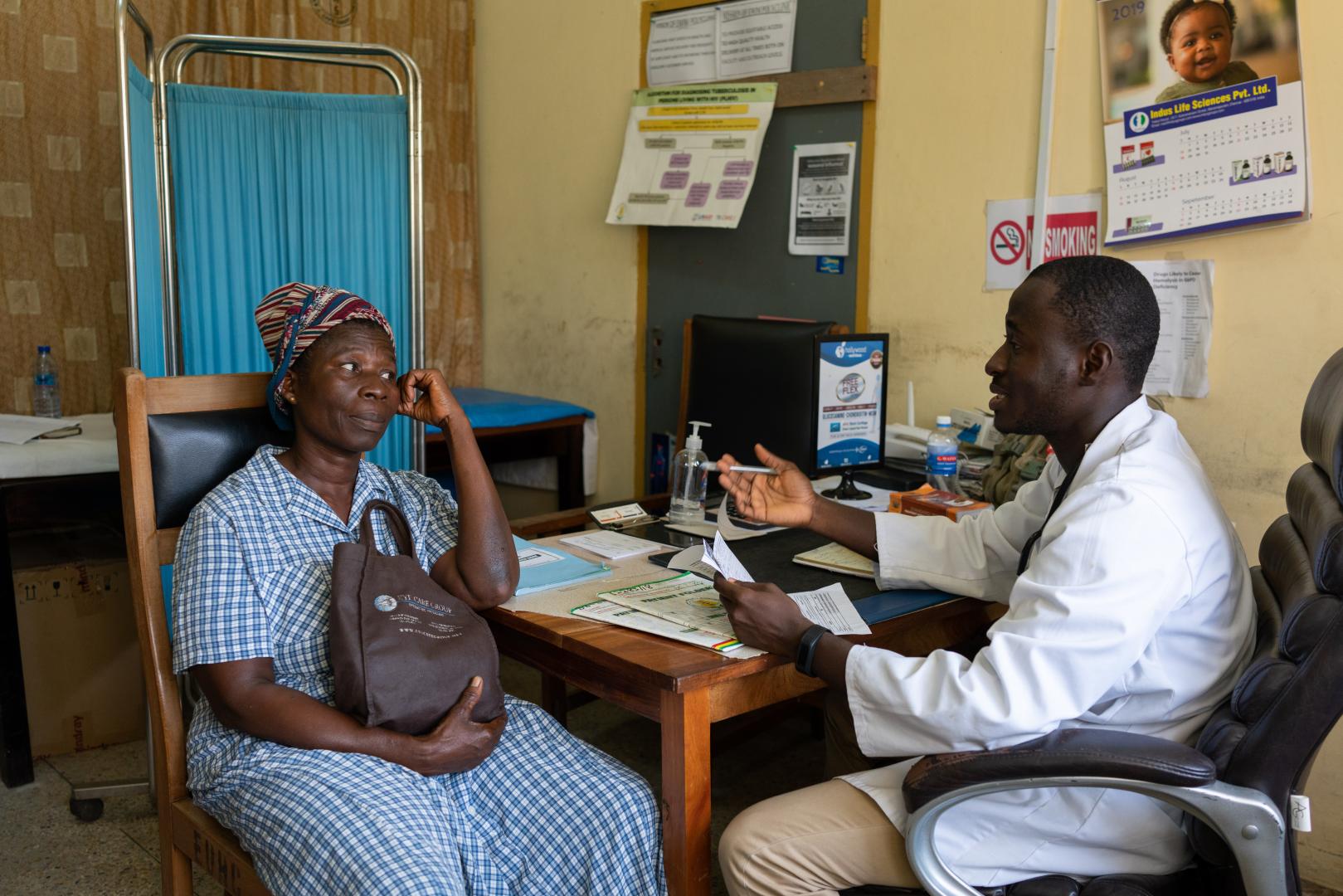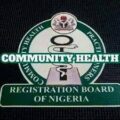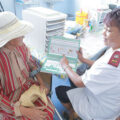According to the World Health Organization, community health workers serves as a liaison between the community and the health care, government and social service systems. These are the people on the front lines, providing advocacy, education and support to civilians in order to help them improve their lifestyle and connect them with their proper healthcare options. A variety of community health workers (CHWs) provide maternal and newborn health (MNH) services in low-income and middle-income settings.
Community health workers often live in the communities they serve, whether that’s rural, urban or somewhere in between. There is typically a larger need for CHWs in underprivileged, marginalized communities where resources are limited or there’s a lack of access to quality healthcare. Not included in this definition are formally trained nurse aides, medical assistants, physician assistants, paramedical workers in emergency and fire services and others who are auxiliaries, mid-level workers and self-defined health professionals or health paraprofessionals.
CHWs may receive training, which is recognized by the health services and national certification authority, but this training does not form part of a tertiary education certificate. Some would include in this group traditional, faith and complementary healers as well as traditional birth attendants, whom we will not deal with in this review, as these important groups warrant separate and quite detailed treatment in their own right.
In Nigeria, Community health workers are trained in universities, colleges of health technology school of Nursing or University teachings hospitals and their practice is regulated by the Community Health Practitioners Registration Board Of Nigeria, a statutory board under the Federal Ministry of Health. It was established by Decree Number 61 of 1992, now CAP C 19, Laws of the Federation of Nigeria, 2004 and till date is responsible for determining and stating what standards of knowledge and skills individuals seeking to become members of the profession of Community Health must have and attain and improving those standards from time to time as the ages change.
Cadres Of Community Health Workers In Nigeria
There are 4 types of Community health workers in Nigeria depending on their qualifications, specialization and job description. The cadres of community health workers in Nigeria are;
- Community Health Extension worker (CHEW)
- Community Health Officers (CHO)
- Community Resource Persons (CORP)
- Junior Community Health Extension Worker(JCHEW)
The history of community health worker programmes
The concept of using community members to render certain basic health services to the communities from which they come has an over 50-year history at least. The Chinese barefoot doctor programme is the best known of the early programmes, although Thailand, for example, has also made use of village health volunteers and communicators since the early 1950s. Barefoot doctors were health auxiliaries who began to emerge from the mid-1950s and became a nationwide programme from the mid-1960s, ensuring basic health care at the brigade (production unit) level. Partly in response to the successes of this movement and partly in response to the inability of conventional allopathic health services to deliver basic health care, a number of countries subsequently began to experiment with the village health worker concept. The early literature emphasizes the role of the village health workers (VHWs), which was the term most commonly used at the time, as not only (and possibly not even primarily) a health care provider, but also as an advocate for the community and an agent of social change, functioning as a community mouthpiece to fight against inequities and advocate community rights and needs to government structures.
This view is reflected in the Alma Ata Declaration, which identified CHWs as one of the cornerstones of comprehensive primary health care. Examples of VHW initiatives in Africa driven by this rationale include Tanzania’s and Zimbabwe’s VHW programmes in their early phase. Both were set in the political context of wholesale systemic transformation (decolonization and the Ujamaa movement in Tanzania, and the liberation struggle in Zimbabwe), and both focused on self-reliance, rural development and the eradication of poverty and societal inequities. Then came the economic recession of the 1980s, which seriously jeopardized particularly the economies of developing countries, and brought shifts in the policy environment as the focus on liberation, decolonization, democratization, self-reliance and the “basic needs” approach to development was replaced by World Bank-driven policies of structural adjustment and its successors.
CHW programmes were the first to fall victim to new economic stringencies and most large-scale, national programmes collapsed (although numerous nongovernmental organizations (NGOs) and faith-based organizations (FBOs) continued to invest in mostly small, community-based health care). The collapse was further facilitated by the fact that many large-scale programmes had suffered from a number of conceptual and implementation problems such as unrealistic expectations, poor initial planning, problems of sustainability, and the difficulties of maintaining quality. While many policy-makers turned their attention away from CHWs altogether, others, wanting to rescue the concept and practice, suggested subtle shifts.
What are some common job duties of community health workers?
It should come as no surprise that the job duties can vary greatly depending on where a community health worker serves. Depending on the specific role, tasks could vary from staffing tables at community events, helping individuals complete applications to access health benefits, or conducting home visits to check on clients. Here are some general job duties many community health workers take on:
- Discuss health concerns with members of the community
- Provide informational counseling and social support
- Help people understand their health conditions
- Translate or interpret health information for clients
- Organize outreach programs
- Provide health screenings, referrals and educational materials
- Advocate for individual and community health needs
- Collect data and report findings to healthcare providers
Regardless of where community health workers work or what type of populations they’re serving, one thing remains constant: They devote their careers to helping educate and improve the health of their neighbors. If that’s a cause you can get behind, this might be the healthcare career you’ve been seeking. SEE: The Components Of Primary Health Care
Roles of Community Health Workers
The roles and activities of community health workers (CHWs) are tailored to meet the unique needs of the communities they serve. A CHWs’ role also depends on factors such as whether they work in the healthcare or social services sectors. Generally, CHWs hold the following roles:
- Creating connections between vulnerable populations and healthcare systems
- Facilitating healthcare and social service system navigation
- Managing care and care transitions for vulnerable populations
- Reducing social isolation among patient populations
- Determining eligibility and enrolling individuals into health insurance plans
- Ensuring cultural competence among healthcare professionals serving vulnerable populations
- Educating health system providers and stakeholders about community health needs
- Providing culturally appropriate health education on topics related to chronic disease prevention, physical activity and nutrition
- Advocating for underserved individuals to receive appropriate services
- Collecting data and relaying information to policymakers to inform policy change and development
- Providing informal counseling, health screenings, and referrals
- Building capacity to address health issues
CHWs promote access to services, provide health education, support care delivery, and promote advocacy. The specific role of CHWs in rural health programs is dependent on:
Services provided through the program, such as:
- Advocacy
- Outreach and enrollment
- Navigation
- Education
- Health services
- Social-emotional support
- Required CHW skills, such as:
- Communication
- Interpersonal
- Cultural competence
- Assessment
- Training
- Professional
- Advocacy
- Education
- Facilitation
Community Health Extension Workers Salary In Nigeria
A Community health officer (CHO) is the highest paid community health extension worker in Nigeria. The salary of a community health extension worker in Nigeria ranges from N25,000 – N130,000 Naira depending on the level of education, seniority and experience.






